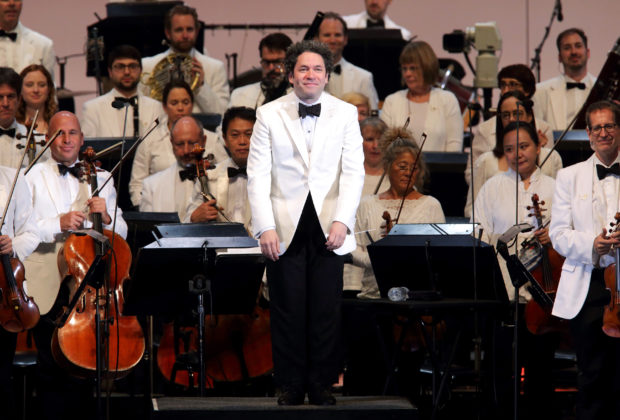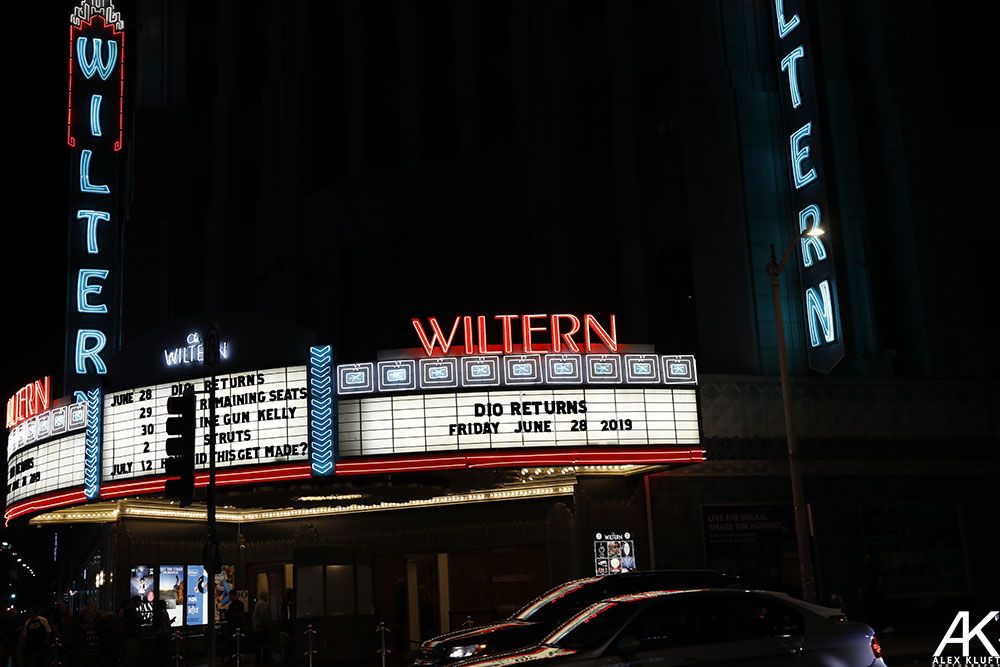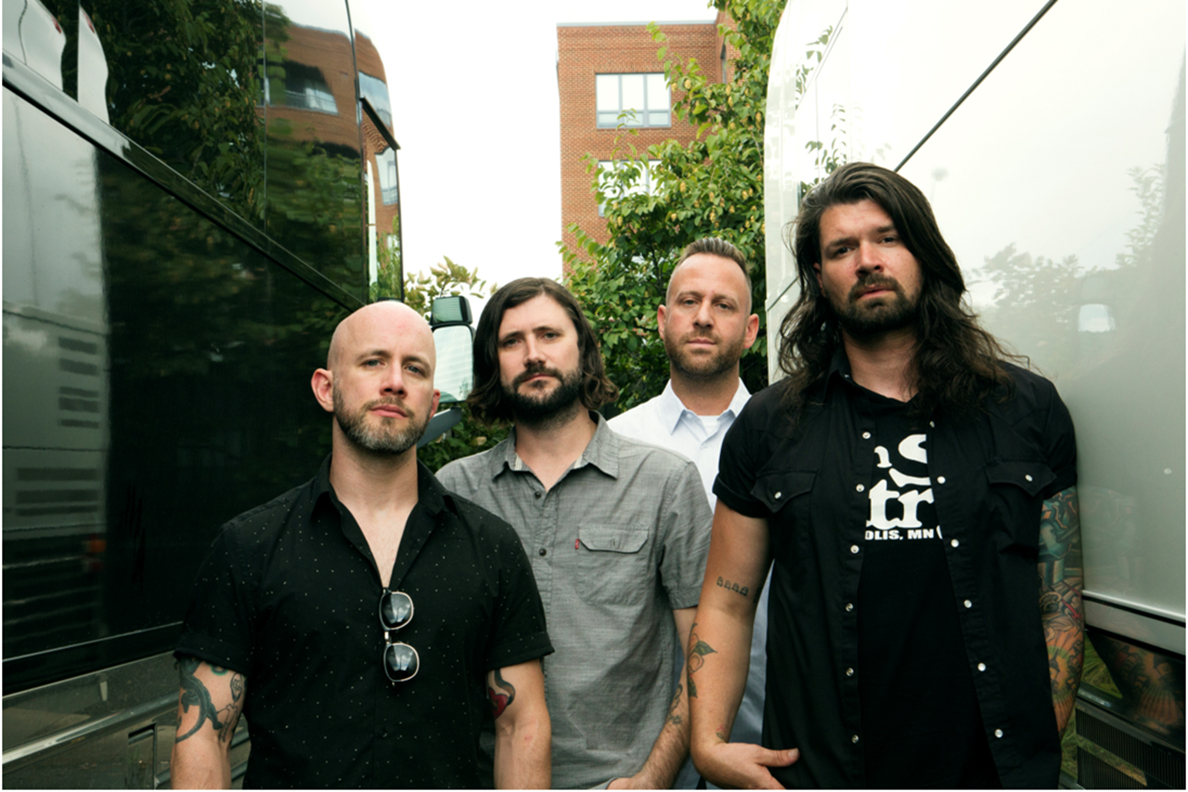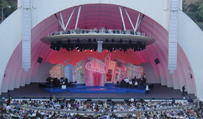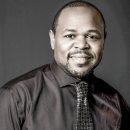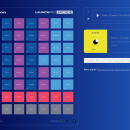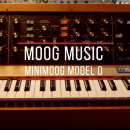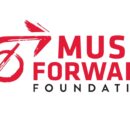Just when you think humanity’s gone a little too far off the rails to the point of no return, a magical, empowering summer night of classical and film music at the Hollywood Bowl reminds us that art is our common connector, hope and transcendence.
The festive night of celebrating Venezuelan-born conductor Gustavo Dudamel’s tenth year as Music and Artistic Director of the L.A. Philharmonic—abbreviated in the calendar and program to “10 Years—Bravo Gustavo!”—began even before the show did with a huge parade-size caricature puppet greeting selfie-happy fans in the Main Plaza and ushers handing out commemorative pins. Anytime a city can celebrate classical music and one of its young-ish world-class conductors like a rock star or in-house royalty, it’s an encouraging milestone in our cultural history. During his charming conversational remarks later in the evening, Dudamel deflected the accolades to the orchestra, which he called “the greatest orchestra in the world.” For one night, at least, it was.
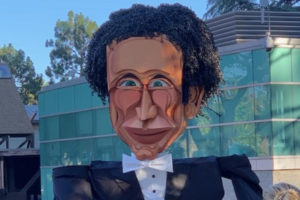
Photos by Craig T. Mathew and Greg Grudt/Mathew Imaging
For such a momentous sold-out occasion, and one that had been anticipated since the Bowl schedule was announced, it was unusual to see the sudden program change from Rachmaninoff’s Piano Concerto No. 3 in D minor (set to come after a medley of classic film scores) to Tchaikovsky’s Piano Concerto No. 1 in B-flat minor. The program insert made note that this shift was made at the request of the guest soloist, world-renowned French-Georgian pianist Khatia Buniatishvili. The reason wasn’t announced from the stage, but it was later revealed that a shoulder injury was the culprit. It didn’t matter because nobody could tell, and the crowd was enraptured by every minute (all 33 of them, which sailed by like Dudamel’s first ten years) of the newly-announced concerto.
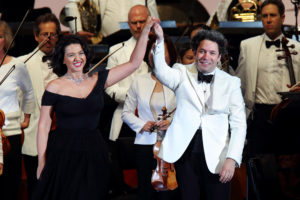
In watching the pianist’s swift percussive hand movements on the video screens during the more whimsical moments of the three-movement work, and the dreamy eloquence of the gentler sweeping parts, there was simply no way to discern any sort of physical limitations. Where there were limitations was in adjectives to describe the joy whipped up by her masterful soloing, Dudamel’s dramatic gestures, their combined unbridled energy and the sweeping power of the orchestra. Sure, we can try—lush, exuberant, thoughtful/introspective, transformational—but those are just words, not emotions that change your perspective on life and love. My box mate turned to me at intermission and said, “You’re the word guy. How would you describe it?” At a loss, I tried, “Incredible.” He said he was transported. That worked just as well!
The Hollywood swinging that now comprised the second part of the show was one of those classic Los Angeles experiences, where soaring pieces from beloved films from several generations reminds us that our crazy city, frenetic and unsettling as it may be at times, has also blissfully given birth to enduring cinematic magic. This was the frolic portion of the show, beginning with Erich Wolfgang Korngold’s “March of the Merry Men” from The Adventures of Robin Hood, then zipping along through Bernard Herrmann’s alternately scary and hauntingly beautiful suite from Vertigo and Max Steiner’s Casablanca, which includes a sing-a-long quote from “As Time Goes By” and motifs from the French National Anthem.
For Franz Waxman’s dramatic and suspenseful Sunset Boulevard, Dudamel invited to the party members of his Youth Orchestra Los Angeles (YOLA) program—inspired by Venezuela’s revolutionary El Sistema. Let’s just say that this program, which provides music training and academic support to more than 1,200 students from vulnerable communities, reminds us that the future of classical and orchestral music is in good hands. The young virtuosos stuck around for one of the most fanciful romps ever through the familiar but always engaging terrain of Henry Mancini’s “Pink Panther Theme.”
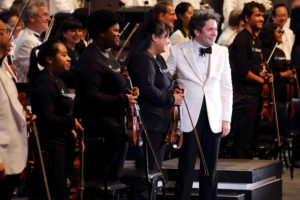
Photos by Craig T. Mathew and Greg Grudt/Mathew Imaging
No Hollywood celebration would be complete without a bit of John Williams’ adventurous spirit in the mix, and “The Raiders March” from Raiders of the Lost Ark was truly a rambunctious treat. Dudamel and company had one more rabbit up their sleeve. Just when everyone thought he had taken his final bows and responded to his last standing O, he led the Philharmonic through the song that says it all about just why we all love films and the Bowl so much, “Hooray for Hollywood"—as fireworks blazed wildly above the iconic shell. A friend of mine likes to joke, “Why do people cheer for fireworks?” On this night, at least, they were cheering for those making the music that took those sparklers to new euphoric heights.
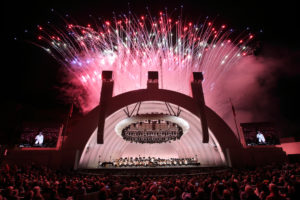
Photos by Craig T. Mathew and Greg Grudt/Mathew Imaging

